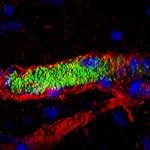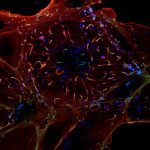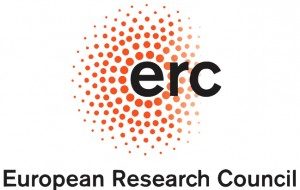Guillaume Dumenil, head of the unit “Pathogenesis of vascular infections”, was awarded a European Research Council (ERC) Advanced grant for his project ‘DESTOP – Destabilizing vascular colonization to stop meningitis’.
Invasive meningococcemia, caused by an infection with the Gram-negative bacterium Neisseria meningitidis, can induce meningitis and septic shock and remains to this day a highly lethal disease, despite antibiotics treatment. This failure to curb the mortality rate raises a paradox, because on Petri dishes, this bacterial species is highly sensitive to antibiotics in contrast to other bacteria which might require higher antibiotics doses. What happens in the human body to explain this resistance to antibiotics? The project led by Guillaume Duménil explores the concept that there is a form of bacterial persistence to antibiotics which develops during infection. In contrast to genetically acquired bacterial resistance, Guillaume Duménil’s team will test other causes of persistence linked to the lifestyle of the bacteria during infection inside the lumen of blood vessels, changes in bacterial physiology or the limitation of access of antibiotics.
The project will focus on different step of bacterial colonization to identify new pathogenic features and potential therapeutic targets. They will investigate the mechanisms involved in bacterial adhesion and aggregation in blood vessels and how bacteria adapt to a confined mechanical environment in clogged vessels. They will also study the interplay between adherent bacteria and the underlying endothelial cells and how the bacteria-induced coagulation impacts antibiotics treatment. This multidimensional project will rely on in vivo microscopy on a humanized mouse model as well as different microfluidic experimental setups to mimic the biological and physical properties of the blood vessel environment during bacterial colonization. It will ultimately lead to a better understanding of vascular infection and to novel strategies to improve meningitis treatment by circumventing antibiotic resistance.



